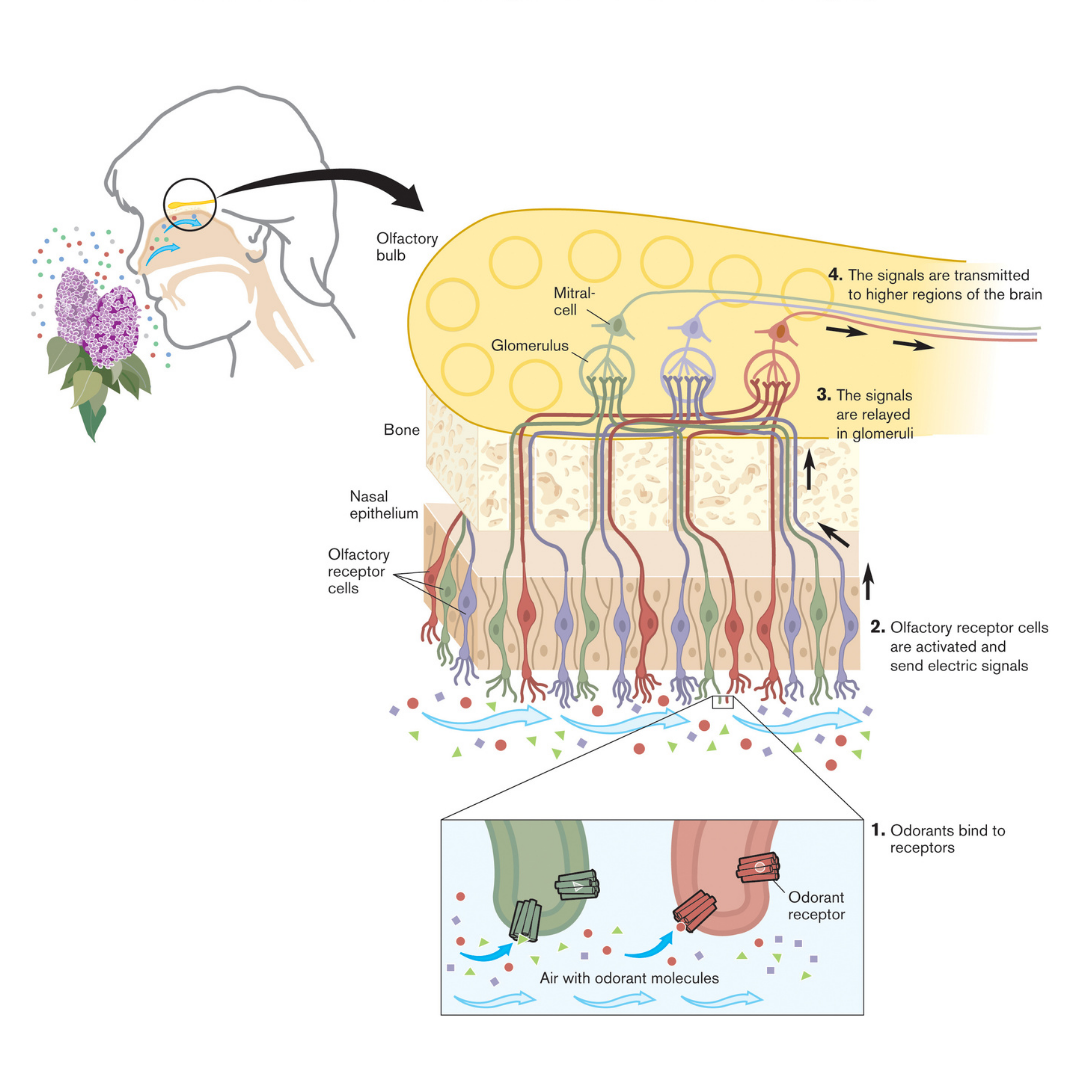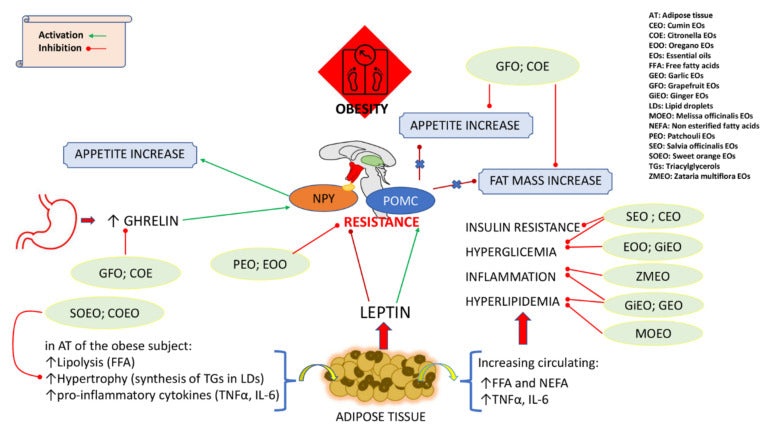
Essential Oils and Aromatherapy for Pain Relief
Article Revised 08/10/23
What are safe and effective essential oils for pain relief?
Many essential oils have been proven safe and effective at reducing pain, and two of the most studied essential oils for pain are lavender and orange. However, a number of other oils have also demonstrated efficacy, including peppermint, bergamot, and frankincense, and systematic reviews and meta-analyses have supported the efficacy of essential oils and aromatherapy for pain in general as well.

What are the active components of essential oils for pain relief?
The compounds in essential oils responsible for their ability to relieve pain and other symptoms are numerous, and many oils overlap considerably in which compounds they contain. The primary molecules responsible for the analgesic effects of lavender and orange essential oils are linalool and limonene, respectively. Some of the other more common compounds with research supporting their pain-relieving properties are citronellal, carvacrol, eugenol, menthol, vanillin, carvone, p-cymene, and farsenol, to name a few, but the list goes on.
How does aromatherapy for pain relief work?
Pain reduction is one of the less intuitive applications of clinical aromatherapy – How could just smelling something make us actually feel less pain?
Pain is a complex feeling, and our experience of it is shaped not just by its direct causes but by a myriad of other factors. There are also many different kinds of pain in terms of how it manifests biochemically. Different essential oils contain different compounds, as explored briefly above, and when they enter the nasal cavity, they are recognized by different receptors. These receptors then immediately send a signal to the brain, and different neurochemical changes occur depending on the signal the brain receives. Many of these processes are involved in how our body signals to our brain that something is wrong or requires our attention, which we experience as pain. However, these processes can be altered via many mechanisms, one of which is aromatherapy.

Aromatherapy is able to provide near-instantaneous pain relief because of the direct connection between our scent receptors and our brains, unlike treatments involving ingestion or venipuncture. In addition, because our experience of pain is so multifaceted, the blending of multiple essential oils can help target a variety of contributing biochemical pathways, making it effective both on its own and in tandem with complementary treatments, depending on the type or severity of the pain.
Why should essential oils be used for pain relief?
A recent Gallup poll found that:
"In 2021, four in 10 adults worldwide said they experienced a lot of worry (42%) or stress (41%), and slightly more than three in 10 experienced a lot of physical pain (31%). More than one in four experienced sadness (28%), and slightly fewer experienced anger (23%)."
It’s relatively common knowledge that prescription pain medication use has been on the rise for some time now and that the opioid epidemic has taken a drastic toll on people’s lives. Aromatherapy is just one of many alternative and complementary therapies for pain that could replace or reduce at least some of the use of these more harmful and habit-forming medications.
Unfortunately, false and dubious claims abound about the alleged powers and benefits of aromatherapy and essential oils, creating a significant stigma around their use in clinical settings. However, as more studies are conducted demonstrating which oils are effective for which treatments and how to safely use them, overcoming this stigma could mean these all-natural, non-toxic therapies could decrease prescription drug dependency and use, not just for pain but for many other symptoms as well.
Ascents® Clinical Aromatherapy
Lavender and orange are two of the primary essential oils that have demonstrated efficacy in pain reduction in clinical trials, and they are both present in the Ascents Calm No. 34 formula alongside patchouli, juniper berry, and ylang ylang. The Ascents Calm blend was specifically used in trials conducted at the Nebraska Children’s Hospital in a palliative care setting, in which it significantly reduced pain as well as anxiety.
The Ascents Calm No. 34 blend is available in the form of personal inhalers, MRI-safe wearable patches, whole-room diffusers, and bottled oils. If you would like to try Ascents Calm or any of the other Ascents aromatherapy solutions, please fill out our Sample Request Form or call us at 800-671-1890.













Leave a comment
This site is protected by hCaptcha and the hCaptcha Privacy Policy and Terms of Service apply.